NDC rolls out good governance cards to raise funds
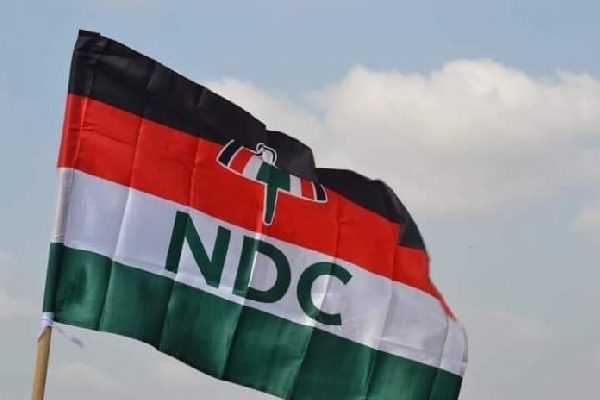 National Democratic Congress
National Democratic Congress
The leadership of the main opposition National Democratic Congress (NDC) has introduced special donation cards known as Good Governance Cards in an effort to raise money for the party in a sustainable way.
In a letter addressed to all Regional Chairmen of the party, signed by its Director of Administration, Emmanuel Zumakpeh, on Tuesday, 15 August 2023, the party revealed this new system is an overhaul of the old one, with two new cards being introduced to widen the net and rope in more funds.
They are the Standard and Loyalty Cards.
According to the leadership of the party, the cards have features: they are self-registering with mobile money and bank payment options as well as handled by a digital platform manager.
Also, a softcopy of the card is dispensed instantly upon completion of payment while the hardcopy is printed and sent to the applicant.
The cards, the party noted further, are under the following classifications: “Prestige, Platinum, Gold, Silver Bronze, Standard and Loyalty.”
“Owners of the existing cards will be rolled over to the new ones with the appropriate modifications,” the letter added.
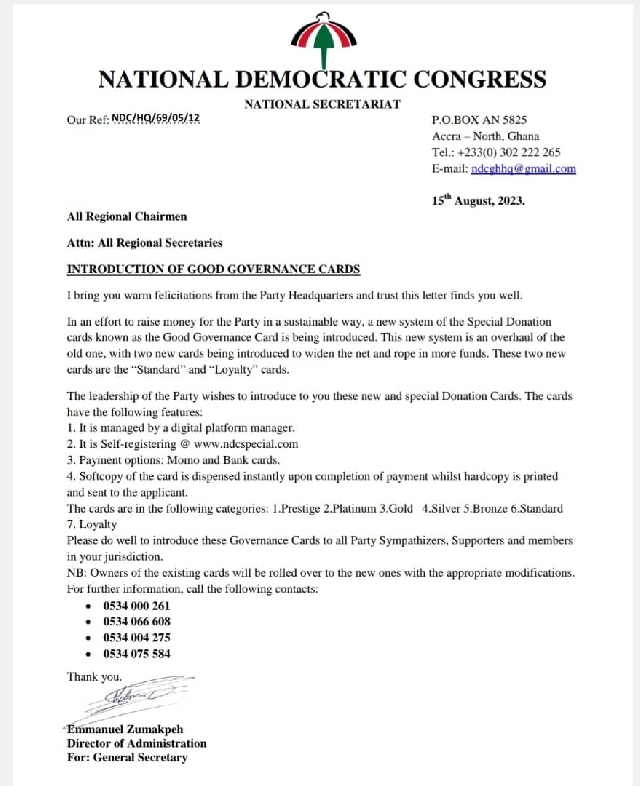
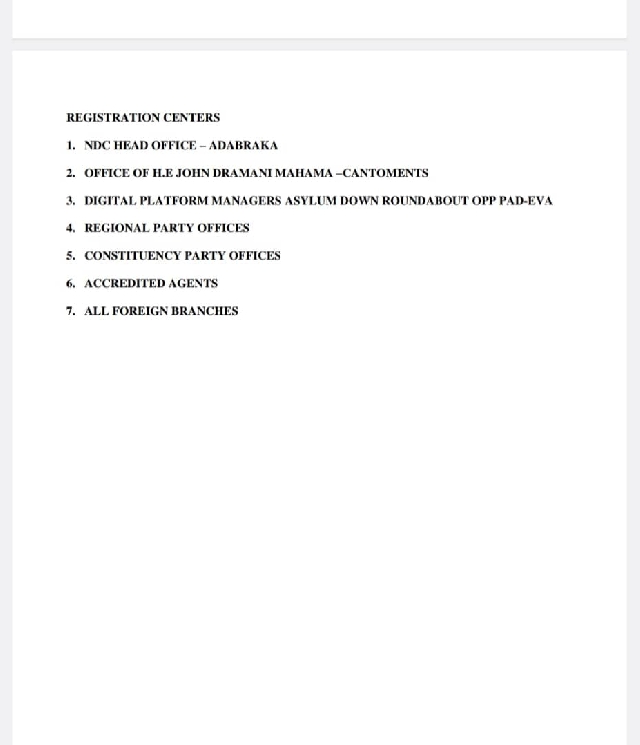
Several forums have been held to debate the financing of political parties since the 1992 elections.
The key concerns, according to a study by the CDD, have been how to build viable parties in order to sustain multiparty democracy and whether state funding is desirable.
An important milestone in the debate was reached in 2003 when in an address to leaders of the registered political parties and other stakeholders, the President of the Republic at the time, Mr. John Agyekum Kufuor, endorsed the view canvassed by many that political parties must be partially, if not fully, funded through budgetary allocations.
He hastened to add, however, that the real challenge remained “when, how and how much.”
In addition to the unresolved issues of when, how and how much, are significant questions regarding public support for state funding of political parties.
The apparent acceptance of the need for state funding seems to be largely confined to Ghana’s political class in general and party leaders in particular.
The CDD paper said it would be misleading to assume that the average Ghanaian would agree that it is the business of the state to finance political parties.
Indeed, some have argued that the time is not ripe for state funding, given the chronic huge gaps in financing the nation’s key social sectors such as education, health and utilities, not to mention the current levels of perception of corruption in the country in general and within political parties in particular.
What are the central arguments for and against public funding of political parties in a democratic system?
Advocates of public funding put forward three broad arguments. They are:
• Reduction in inequality – Public funding provides a more even “playing field” for the parties. The advantages of incumbency and greater financial resources for the ruling party are reduced; all the candidates and parties would therefore have the political space to concentrate and offer their views on how to solve the problems facing the country.
• Reduction in corruption – Partly because of accounting and reporting requirements, public funding reduces the temptation for political parties to accept illegal contributions, to accept donations in exchange for favors, to use money for activities like vote-buying, to use state resources in conducting election campaigns, or any number of corrupt political practices.
• Reduction in special interest influence – Public funding reduces the temptation for political parties to accept “interested money,” by which a party becomes disproportionately influenced by a small minority of people. By reducing the influence of special interests in a political system, the interests of the majority are better represented.
By contrast, OPPONENTS of public funding of political parties argue as follows:
• Inappropriate use of public resources – It is inappropriate for the government to spend large sums of money on political parties when there are pressing social needs that remain unmet, such as poverty, health care, nutrition, basic education, and so on.
• Some Parties might become complacent and atrophy – After they receive public funding, political parties will cease to actively seek new members and funds from the voting public. The parties will no longer feel a need to perform their activities, since funding will be comfortably provided by the state. This complacency will cause the parties to atrophy and lose their efficacy and influence.
Reduce the influence of money by restricting money flow – The political parties have access to enough money already; they need to learn how to manage what they have better and use it more wisely. They have a fiduciary responsibility to be more frugal with the public’s money. The best way to reduce corruption in politics would be to minimize the influence of money by restricting the amount of money flowing into the political system generally and the electoral system in particular.
Also, former President John Mahama has had cause to speak on the matter during a lecture in early 2023, as captured below:
Public lecture on political financing in Ghana and launch of JM 2024 fundraising platform.
Keynote Speech by HE John Dramani Mahama on Financing political campaigns the Ghana We Want: The Case for a more transparent and broad-based citizen participation.
University of Professional Studies, Accra, Wednesday March 22, 2023,
Mr. Chairman, Hon. Members of Parliament, Members of the Diplomatic Community, Officials of the different Political Parties, including my own NDC Comrades, Representatives of Civil Society Organisations, Distinguished Invited Guests, Ladies and gentlemen,
Thank you all for your presence at this important national event – to discuss financing political campaigns. This is a topic, I believe, is very close to the hearts and minds of many a Ghanaian.
Let me also thank my colleagues on the John Mahama 2024 team for the initiative to re-open a conversation of financial political campaigns, something that has been on the table from the very start of our political journey.
I must also show appreciation to the Civil Society Organisations, Research Institutions and individuals that have supported us to host tonight’s event. These include Friedrich-Ebert-Stiftung Ghana who paid for the use of this venue, CSOs such as IMANI, CDD, IDEG, GII, COPEC, as well as the Political Science Department of the University of Ghana, Legon, which provided expert views on the subject matter.
Indeed, it is my hope that the discussion will resume from here, and reform efforts will start to propel our democracy to build the Ghana we all want.
I will, in this presentation, make a case for a more transparent and broad-based citizen participation in the financing of our political campaigns. I will also outline and launch a smart digital retail fundraising platform for my 2024 Campaign.
Thanks to the very robust fixed and wireless broadband my administration installed across the country, Ghana today has enough internet capacity to power digitalised applications. It is my hope that through this innovative smart kernel, political parties can broaden and nurture many trees with abundant branches for resource mobilization.
Surely and hopefully, such an intervention will address the dependency on a few individuals who finance political campaigns in return for favours – a recipe for corruption in any democracy. And if I may add, CSOs and other public-spirited organisations can also adopt this system of broadbased resource mobilization to fund their activities to limit the strictures that sometimes accompany donor-funded research and advocacy in developing countries such as Ghana.
Ladies and gentlemen, the theme for this event says it all. We must reform the financing regime for political party activities in Ghana. While this issue may be as old as the 4th Republic, having been advanced by many in the past, it remains relevant. It is one piece in our democratic journey that has continued to elude reform.
As a key actor in our political space since 1996, I can attest to the relevance of ethical campaign financing in Ghana. Whereas some political actors have advocated state sponsorship for political parties, the truth is, Ghana is today, broke.
Ghana is struggling to secure an IMF programme lest the economy collapses totally by end of March 2023, according to the Minister for Finance. This being the case, Ghana cannot, at the moment, absorb additional expenditure streams.
Truth be told, the state already supports political parties in many ways – many political parties have on many occasions had their filing fees returned to them after elections, because they attained the minimum threshold of votes. This means the state finances filing fees.
Also, in the past, Government has through the Electoral Commission procured and distributed vehicles to political parties in proportion to the share of votes in the immediate past election. With the possibility of further state financing shut – at least for now – I aim to re-open the conversation on political party financing in Ghana, with emphasis on needed reforms and regulation to promote transparent and broad-based financing options for parties.
My brothers and sisters, specifically, we want the national discourse to focus on the following key questions, among others:
1. How are our political campaigns being financed in Ghana?
2. How efficient is the EC’s regulatory oversight?
3. Are our political parties playing their role as vehicles for national development?
4. On the issue of government funding of political parties, is this feasible?
5. Should the EC’s regulatory responsibility for political financing be re- assigned to a separate Statutory body?
6. Are citizens in favour of such government funding for political parties?
7. Should the Political Parties Act, 200 (Act 574) be reviewed? If so, in what ways?
8. How can political parties promote a transparent and broad-based financing of their activities?
9. How can recent technological advancements assist in this regard?
Ghana has had eight (8) presidential and parliamentary elections since 1992. Three of these elections have led to the peaceful handover of power from the incumbent party to the opposition; namely, the 2000, 2008 and 2016 elections.
On the structure of our parties, the NDC and NPP, have maintained quite a good network across the country and this has helped to generate strong interest in party politics among Ghanaians.
As a result, there has been an averagely high voter turnout in our presidential and parliamentary elections. For example, the turn out for 2004, 2008, 2012, 2016, and 2020 were 85%, 73%, 80%, 69%, and 79% respectively. By peer standards, these are relatively high, and on that score, Ghana’s democratic credentials have been touted as among the best in the sub region.
However, this assessment ignores other aspects of our democracy that have not progressed and are, in fact, impacting negatively on the progress made so far. This is to do with the level of transparency and depth of regulatory oversight on how campaigns are financed in Ghana.
Usually, the normal practice has been that a political party would derive its resources from the regular dues paid by its members; donations by individuals; or special fundraising by the party for specific purposes.
According to the Ghana Centre for Democracy and Development (CDD), in recent times, some financing of political campaigns was coming from illegal activities such as illegal miners, oil bunkering businessmen, fraudulent businesses, procurement dealings in the award of contracts, among others.
Their study even reported that there appeared to be a strong association between financing of political campaigns and organized crime in Ghana. This is worrying! Worrying because it has the potential of mortgaging our governance system to criminals. If that happens, our democracy would be gradually turned into a plutocracy – a country ruled indirectly by a few wealthy individuals.
Ladies and gentlemen, viable political parties play a strong role in promoting democracy and sustainable development in any country. They perform key roles in the formation of government, develop leaders at various levels, and serve as a watch dog for incumbent governments. This is why we cannot continue to ignore the healthy development of our political parties, given the fact that these are also state political institutions.
On government support for political funding, some have argued that the only funding that may be advanced to parties and cannot be concealed in secrecy is public funding. This refers to government giving financial resources or indirect assistance to political parties.
As mentioned, in the absence of such support, and given the huge cost of political activities, wealthy party financiers may take over as political godfathers who determine electoral outcomes and all that follows it.
Ghana today is broke. International credit rating agencies have placed us in junk status. Additional state financing can therefore not be a viable option on the table. Even if that becomes an option in the future, I recommend that we put in place an explicit Public Funding of Political Parties Bill in a bipartisan and inclusive manner.
I further recommend that should public funding of political parties be scaled up in the foreseeable future, then, an independent and credible institution must be selected to administer the state resources advanced to political parties. In that regard, a sharing formula could be established to ensure fairness, and specific disclosure requirements on beneficiary parties. This must be complemented by auditing and publication of party accounts.
Ladies and gentlemen, even though I do not recommend additional state financing at this time of national economic meltdown, I accept a lot more needs to be understood regarding how political parties are financed because these could have implications on our developmental outcomes. We must understand how politicians finance their campaigns for office, and to whom they are indebted and are expected to repay.
It is therefore important we engage in sustained discussions and build consensus on funding political parties within the context of public policy to promote good governance and democratic practices in Ghana.
Regarding the needed reforms, the starting point may be Chapter seven (7) of Ghana’s 1992 Constitution (Article 55) and the Political Parties Act (Act 574) that regulate campaign financing. Whereas the Constitution makes room for non-financial support to political parties by institutions and external bodies, the Political Parties Act (Act 574) provides that only a citizen of Ghana may make a contribution or donation to a political party registered in Ghana.
According to the Act, “A non-citizen shall not directly or indirectly make a contribution or donation or loan whether in cash or in kind to funds held by or for the benefit of a political party, and no political party or person acting for or on behalf of a political party shall demand or accept a contribution, donation or loan from a non-citizen.”
Political parties are also required to declare to the public their revenues and assets and the source of those revenues and assets.
On private sector options for political parties to source funding, some experts have made some interesting suggestions that are worth considering in our debate on this.
In a recent paper authored by the Speaker of Parliament, Rt. Hon. Alban S. K. Bagbin and Albert Ahenkan titled, “Political Party Financing and Reporting in Ghana: Practitioner Perspectives,” the authors recommended setting up a regulated fund, a common fund, or a matching fund. They opined that these must be well structured to serve as an incentive for political parties to source private sector funding from legitimate sources.
Our debate should certainly evaluate each of these proposals and build consensus on the way forward. In sum, the jury is still out on whether there must be some public support for political party funding in Ghana and how to broaden the funding mix for political parties in Ghana. We must therefore engage on the way forward in the interest of our democracy.
We must be bold in reviewing the entire framework of our democratic experiment, identifying reform gaps in the legal and institutional framework and push for reforms whether in the Constitution, Acts of Parliament or other legal frameworks that are holding back progress.
We must do so for most of our state institutions and act to mend the growing breach between society and Ghana’s political system.
We must also intensify stakeholder efforts and engagement on the National Anti-Corruption Action Plan (NACAP). It is sad observing Ghana’s performance on the Transparency International Corruption Perception Index score card after many years of NACAP’s existence. This is not how we programmed NACAP to be. NACAP can do better! And NACAP must do better!
God willing, in 2025, when I have the opportunity to be the President of Ghana who has been a President before, I will come with priceless experience to fix our broken nation. I want us to build the Ghana we want together by writing – not footnotes, not pages but – chapters in the anticorruption history of our dear country Ghana. We must also uphold human rights, including freedom of expression and not be describing some journalists as terrorists.
Mr. Chairman, my agenda to Build the Ghana We Want Together from 2025, will involve farreaching constitutional, political and governance reforms to restore confidence in our democracy and governance systems.
We plan to take up and conclude the constitution review process that started under President John Evans Atta Mills. The reforms will include a review of the controversial Article 71. I still believe that in this crisis period, Ghana can be managed with not more than 60 ministers. And to cut down on the number of officeholders and remove the disparities in privileges and emoluments.
Let me state once again that I will scrap the payment of ex-gratia to members of the Executive and persuade other arms of government to accept same. Let those who oppose the scrapping of exgratia state so explicitly instead of moving in meandering contours in a failed attempt to trivialize this important promise.
While I was determined to take this very action and others in the past through the implementation of the constitution review process, a legal challenge that was eventually determined too late in my tenure of office; and the NPP’s general opposition to the constitution review process made it impossible to proceed further with the review implementation phase.
I invite you all, including the NPP, to join me to form a consortium of the willing for us to succeed in scrapping the payment of ex-gratia. I have every confidence that an Independent Emoluments Commission can determine the conditions of service of all public officers, from the president to the lowest ranking public officer on government’s payroll.
My brothers and sisters, that will constitute a true and proper ‘Single Spine’ to replace the current ‘Double Spine Salary System’ – where Article 71 office holders are on a different spine separate from other public sector workers.
In building the Ghana we want; we will listen attentively to suggestions from civil society groups and the youth front for other constitutional reforms.
I have heard the arguments asking for Articles 86 and 87 to be amended to have an entrenched provision for a comprehensive long-term national development plan that will be binding on all successive governments. This is to curtail the uncoordinated approach to our long-term development policymaking. You may recall my administration developed a 40-year National Development Plan that was jettisoned in 2017.
I have also heard the call for the interface between the Executive and Legislature in Article 78 to be dissolved to make Parliament truly independent. Additionally, I am aware of calls for more autonomy for the police service and to ensure the rule of law by amending Articles 202 and 203.
These voices are advocating the depoliticization of the Police Council and calling for the appointment of the leadership of the Police Service for a fixed term with security of tenure. This it is believed will loosen the current overwhelming control the Executive maintains over the service. Other areas include amendment of Article 243 to make for the election of District Chief Executives and Article 128 to put a cap on the number of Supreme Court Justices that may be appointed.
Off course, the appointments of known party activists onto the Electoral Commission by our current President may require an amendment of Article 43(2), to provide for parliamentary approval of new Commissioners to the Commission. Let me assure you once again, I remain committed to these reforms.
Ladies and gentlemen, as I indicated in my introduction, I intend to introduce an interactive and smart digital retail fundraising platform to help broaden the scope of campaign financiers with the view to addressing dependency on a few.
There are emerging opportunities for political parties to broaden the source of their funding. These new opportunities are being driven by technology and in particular, electronic crowdfunding platforms, as are being used in developed countries. I have therefore adopted a crowdfunding technology to promote a more transparent and accessible means to raise funds to execute my 2024 campaign.
The use of reliable fintech payment systems will push this agenda to promote citizen participation in the financing of political parties’ activities. We did not have to go far in search of such a robust solution because Ghana has a lot of young talented fintech entrepreneurs who have invested so much within the digital ecosystem and have already created a lot of employment opportunities for several Ghanaians. These fintech entrepreneurs are successfully using their innovations to transform various sectors of the economy such as financial services, Agri-business, Health, Education and many more.
As a former Minister for Communications, I feel proud witnessing the evolution of the reforms I led in the 90s and the investments I made as President in Ghana’s technology and digital space. Talk about the Eastern corridor fiberoptic project, the 300-kilometre Accra- Tema metro fibre optic link, the 119 4G/LTE Base Stations constructed to provide high speed internet and more. Not to forget the ultramodern edifices housing the Ministry of Communications, the National Data Centre, the National Communications Authority (NCA) and the Accra Digital Centre, all provided by the NDC administration.
Ladies and gentlemen, on the back of these achievements, we are launching this digitalized retail donation campaign tonight to mobilize small contributions from Ghanaians, both locally and in the diaspora. The platform is transparent and has a dashboard screen that will show all inflows in real time. The dashboard is in turn linked to a collection bank account so that proceeds from all the channels can be received directly and used for the intended purpose.
Four (4) channels will be available for sending donations.
These include:
1. A John Mahama campaign mobile money number.
2. A USSD code.
3. An Official Zenith Bank account number; and
4. A John Mahama fundraising mobile App. There will be a hotline you can call and access always to make enquiries.
You can also email [email protected].
I encourage everyone to donate freely. I must also emphasize that the retail donation platform is subject to the Crowdfunding Policy issued by the Bank of Ghana in February 2022. Therefore, the framework will be managed in line with a strict regulatory policy.
Ladies and Gentlemen, it is now my honour to declare the John Mahama 2024 Campaign Fund Raising Platform formally launched.
Let’s build the Ghana We Want and let’s do this together.
Thank you very much.
Source: classfmonline.com
Trending News
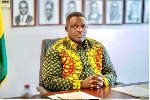
MTN data breach: Stay calm as we investigate, resolve it – Comm Min
02:11
Forgive us for our lapses; we’ll do better next time - Bawumia to Ghanaians
13:09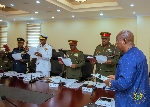
Mahama swears in new service commanders
08:05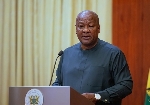
CDM sees suspension of Chief Justice as a constitutional breach
08:59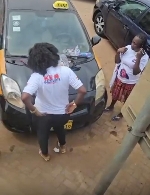
Team Ken 2028: Turns Bawumia's Thank You Tour into campaign arena, agents caught sharing money and t-shirts
19:55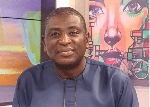
Bawumia deserves praise for inviting us to join his thank you tour - Kojo Nsafoa
12:57
Multi –million dollar World Bank Aayalolo BRT turns ‘BST’, compete for passengers with 'Trortro'
16:55
CDM questions impartiality of committee probing Chief Justice
08:51
NIA expands premium services to 5 regions, relocates Accra centre
19:04
Weija-Gbawe MP launches 2025 BECE mock examination to boost students' preparedness
12:43




